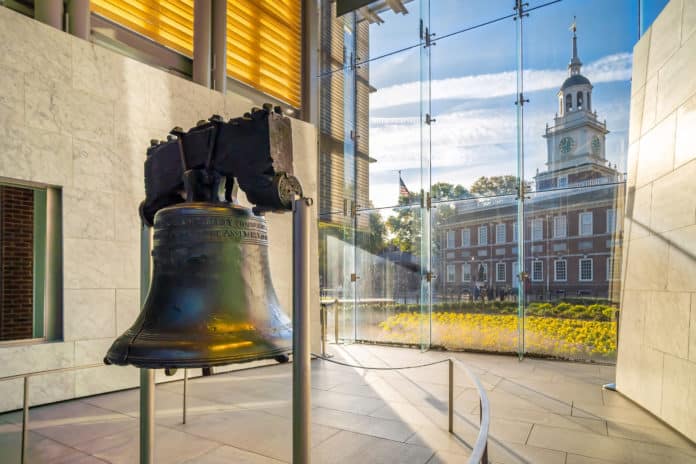Amid the cookouts, weekend trips, and other daily distractions, one can be forgiven for losing sight of why we celebrate this weekend.
As a former historian, I’d be remiss not to remind readers that “independence” is the defining characteristic of American citizenry.
Most nations came together because of soil, religion, or ethnicity, but the United States was born because our founders believed in certain principles. Having escaped European avariciousness and persecution, they were proud defenders of freedom and opportunity.
These concepts formed the foundation of America’s history and guided us during the two-and-a half centuries of progress since we declared independence from Great Britain. Our revolution represented an intrepid people seeking sovereignty, specifically through consent of the governed.
The signers of that famous parchment knew that declaring freedom from King George’s tyranny could be their death sentence. Their disparate states didn’t have the numbers, money or training to defeat the British, who would soon sail across the ocean and bring their wrath on the colonies. Yet these God-fearing men put their signatures, lives, and their destiny on that July 4 document because they sought liberty and self-rule.
The first celebration of American independence took place a few days later in Philadelphia when the Declaration of Independence was read publicly for the first time.
The Liberty Bell then rang out from Independence Hall, and King George’s coat of arms was discarded, followed by booming cannons signifying the birth of a new nation.
Philadelphia celebrated the first anniversary with an official dinner for the Continental Congress. This included gun salutes, speeches, prayers, and parades, with shops adorned in red, white, and blue.
In a letter to his wife, Abigail, John Adams emphatically wrote, “It ought to be commemorated as the day of deliverance, by solemn acts of devotion to God Almighty. It ought to be solemnized with pomp and parade, with shows, games, sports, guns, bells, bonfires, and illuminations, from one end of this continent to the other, from this time forward forevermore.”
In 1778, General George Washington marked Independence Day with an extra ration of rum for his soldiers and an artillery salute. Across the Atlantic in France, Adams and Benjamin Franklin held a dinner with fellow Americans.
In 1791, the first recorded use of the name “Independence Day” occurred.
Congress made Independence Day a federal holiday in 1870
In 1926, on the Declaration of Independence’s sesquicentennial, President Calvin Coolidge gave a speech in Philadelphia, with a noteworthy portion explaining, “Great ideas do not burst upon the world unannounced. They are reached by a gradual development over a length of time usually proportionate to their importance. This is especially true of the principles laid down in the Declaration of Independence.”
Today, July 4 is commonly associated with patriotism, barbecues, baseball games, a lake weekend, and various ceremonies celebrating America’s traditions. Parades often occur in the morning, while fireworks displays dominate warm evenings along rivers, at parks, and town squares.
That’s all phenomenal and quintessentially American, so long as we don’t forget the reasons we remain free to enjoy such fun and freedom.
A.J. Kaufman
A.J. Kaufman is an Alpha News columnist. His work has appeared in the Baltimore Sun, Florida Sun-Sentinel, Indianapolis Star, Israel National News, Orange County Register, St. Cloud Times, Star-Tribune, and across AIM Media Midwest and the Internet. Kaufman previously worked as a school teacher and military historian.

















